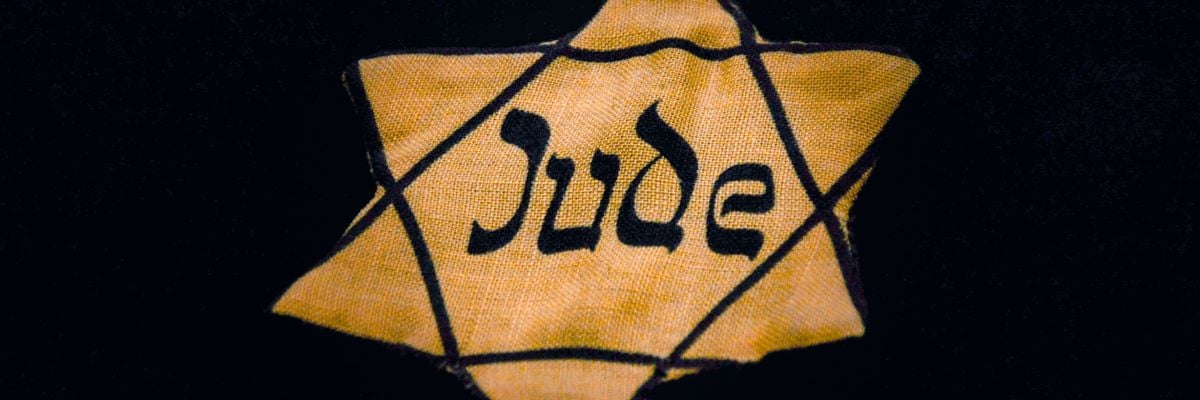
Given the suffering they have historically endured, the Jewish people excel at distinguishing friends from foes.
Such vigilance may help explain a certain wariness toward the Catholic Church. Religious rivalry over the person of Jesus Christ has marked Catholic-Jewish relations for 2,000 years, with the Church not always giving faithful witness to the Gospel. Pope St. John Paul II noted as much twenty years ago in a letter that accompanied a Holy See reflection on the Holocaust.
All the more remarkable, then, were those Jewish leaders who unanimously praised Pope Pius XII for all he did to save Jews from Adolf Hitler’s Final Solution. They commended the pope not only during World War II and right after, but also thirteen years later upon his death in October 1958, when there had been ample time to amend their assessment had their earlier affirmation been mistaken. Those who eulogized Pius XII represent a “Who’s Who” of Jewish leadership, including:
the State of Israel
the World Jewish Congress
the Anti-Defamation League
the Synagogue Council of America
the Rabbinical Council of America
the American Jewish Congress
the New York Board of Rabbis
the American Jewish Committee
the Central Conference of American Rabbis
For a sampling of their words of praise, see footnote sixteen of the Holy See’s 1998 reflection on the Holocaust.
Could the State of Israel and all of these Jewish organizations have been wrong? According to Pius XII’s many modern critics, they definitely erred. The Vatican Archives for WWII will be opened next March, as Pope Francis recently announced, but thinking the truth will finally be revealed gives the Church way too much credit for supposedly being able to keep secrets, and not enough to the Church’s friends and enemies who experienced firsthand the courageous actions of Pius XII and other wartime Church leaders.
If Pope Pius’s many contemporary Jewish defenders were wrong, it’s incumbent upon modern critics—Jewish, Christian, secular and journalistic—to demonstrate how they got it so wrong. They have yet to do so. Presuming these Jewish leaders were bamboozled by Pius XII effectively defames them, and to some, such defamation is apparently tolerable in the cause of defaming the pope—and the Catholic Church by extension.
Yet, if we are to believe modern critiques of Pius XII, which have ranged from Rolf Hochhuth’s criminally silent pontiff in the 1963 play “The Deputy,” to John Cornwell’s Hitler’s Pope (1999, updated in 2008 with a new introduction), then not only did the pope’s Jewish defenders get it wrong, but the Nazis and secular journalists did as well.
As Bishop and then Cardinal Eugenio Pacelli, the future pontiff served as papal nuncio to Germany from 1920-29 and Vatican Secretary of State from 1930-39. In his 1968 book Pius XII Was Not Silent, Jewish historian Jeno Levai notes that during these years Pacelli “obviously played a decisive part in the dispatch of the sixty notes in which the Vatican protested the persecution of the Jews up to the outbreak of war—quite apart from the papal encyclical beginning with the words ‘Mit Brennender Sorge’ (With Burning Anxiety).” That encyclical was written in German (not the usual Latin)—Pacelli was fluent in both, given his years of service in Germany—and then surreptitiously distributed and read aloud in German Catholic churches on Palm Sunday in 1937.
Little wonder, then, when his fellow cardinals elected Pacelli pope on March 2, 1939, that the editors of the Nazi newspaper Berliner Morgenpost were not elated: “The election of Cardinal Pacelli is not accepted with favor in Germany because he was always opposed to Nazism and practically determined the policies of the Vatican under his predecessor.”
The New York Times, which has long had Jewish editorial leadership, praised the Pope on various occasions, including for his 1941 Christmas message: “[Pius XII] put himself squarely against Hitlerism . . . [and] left no doubt that the Nazi aims are also irreconcilable with his own conception of Christian peace.” The following Christmas, when the Pope proclaimed that “hundreds of thousands who, without any fault of their own, sometimes only by reason of their nationality or race, are marked down for death or progressive extinction,” the Times editorialized, “This Christmas more than ever he is a lonely voice crying out of the silence of a continent.”
Cornwell dismissed the 1942 Christmas message as “not merely a paltry statement. The chasm between the enormity of the liquidation of the Jewish people and this form of evasive words is shocking.” The editors of the Times during the war disagreed strongly, since they understood how easily Hitler could be provoked during the war, and how much Pius XII was saying and doing to save Jews, Catholics and other in wartime Europe. The editors, whose modern successors have ignored their predecessors’ position, knew that his Christmas message would diplomatically—but unmistakably—sound the alarm for further Allied military efforts. Those efforts might have ultimately saved far fewer people in 1944 and 1945 had Pius XII foolishly dialed up his rhetoric, as Cornwell suggests he should have.
And unfortunately for Cornwell, the Nazis disagreed with him about the strength of the pope’s public stance. As Anthony Rhodes documents in The Vatican in the Age of the Dictators, the Gestapo also analyzed the pope’s 1942 Christmas message, finding in it “one long attack on everything we stand for,” and that the Pope “makes himself the mouthpiece of the Jewish war criminals.”
Given cultural changes that began to accelerate in the early 1960s regarding sexual mores, increasingly liberal societal leaders—Jewish, Christian and otherwise—began to abandon Pius XII, because defending him and the Church was counterproductive to their revolutionary social agenda. Cornwell’s concluding and self-revealing final chapter makes this abundantly clear. So they gladly welcomed the “Hitler’s Pope” thesis, which itself was a product of Communist disinformation, as Pius XII scholar Ronald Rychlak has documented so well.
The Church’s critics performed this about-face, however, without presenting new evidence that convicted the Pope, as the Anti-Defamation League (ADL) documented in a 1963 monograph defending Pius XII against Hochhuth’s charges. Dr. Joseph Lichten, then the director of intercultural affairs for the ADL, observed, “Some Jewish leaders who had none but words of praise for Pius’ efforts on behalf of the Jews, now point fingers of blame at him, effectively reversing their position of 15 and 20 years’ standing.”
Nothing of substance has been brought forward to convict Pius XII in the intervening fifty-six years, although sustained campaigns have successfully smeared the wartime pope in the eyes of the average person.
Thankfully, the tide has been turning in recent years. Yad Vashem, the World Holocaust Remembrance Center in Jerusalem, remarkably updated its exhibit in 2012, saying condemnations of Pius XII’s wartime record are now “a matter of controversy among scholars.” In addition, in 2015 Mark Riebling published his important book Church of Spies: The Pope’s Secret War Against Hitler, which, “in thorough research and documentation,” summarizes Jewish Week, “shows that Pius XII, rather than being an acquiescent enabler of the Nazis’ genocidal designs, was an active participant in an intrigue whose goal was the assassination of the Fuhrer.”
In 1999, four Jesuit priests analyzed the entire wartime archives, and the publication of their work, Pius XII and the Second World War: According to the Archives of the Vatican, providentially coincided to serve as a riposte to Hitler’s Pope. When these same archives are opened in March 2020 to all scholars, expect Pius XII and his Jewish contemporaries to be further vindicated, the spin of the pontiff’s critics notwithstanding.



